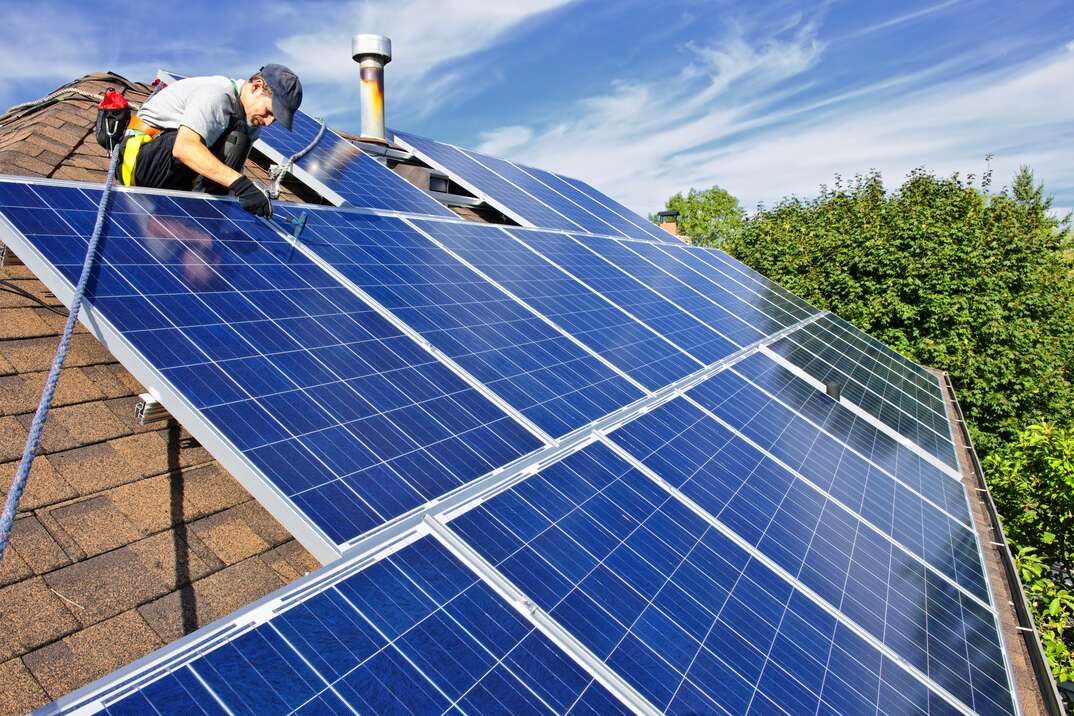What Are the Different Types of Solar Panels Available?

Nowadays, homeowners have many choices when it comes to residential solar panels. However, having so many options can make it hard to know which is the correct type of solar panel for your needs and budget.
Fortunately, understanding the similarities and differences between the most common types of solar panels can make your decision significantly easier.
Monocrystalline Solar Panels
Monocrystalline solar panels feature one silicone crystal per solar cell that absorbs solar energy to be turned into electricity. This type of solar cell is black, although the sheets and frames come in various color options.
The main advantage of monocrystalline solar panels is that they're efficient. According to Energy Sage, most monocrystalline panels offer between 15% and 22% efficiency. However, the single-crystal cells are challenging and time-consuming to produce, making them the most expensive on the market.
Polycrystalline Solar Panels
Unlike monocrystalline solar panels, polycrystalline solar cells contain crystal fragments. They're much cheaper and easier to manufacture, making them a less expensive option for homeowners. They function like monocrystalline panels but are somewhat less efficient at around 15% to 17%. You can purchase polycrystalline panels in various colors, although the solar cells are usually blue.
PERC Solar Panels
Passivated Emitter and Rear Contact (PERC) solar panels are similar to standard monocrystalline or polycrystalline panels. However, they feature an extra layer on the bottom of the panel that reflects sunlight back into the cells, allowing them to generate energy more efficiently.
PERC panels can be a good option if you want to generate electricity using fewer panels. However, they're less durable than many other types of solar panels because they contain fragile metal strips.
Thin-Film Solar Panels
Thin-film solar panels differ from monocrystalline and polycrystalline models because the solar cells are up to 350 times thinner. They look significantly less obtrusive on a roof because they lie flat against the roofing materials, and they're also portable and flexible. However, they don't offer the same performance or efficiency as other solar panel types.
More Related Articles
- How Do I Tell If an Electrical Issue Is Serious?
- Can One Bad Outlet Affect Others?
- How to Reset a GFCI Outlet
- What’s in My Electrician’s Van?
- 7 Ways to Save on Your Electric Bill
What's the Most Common Type of Solar Panels?
According to Nexamp, monocrystalline panels are the most commonly used solar panels for residential homes. Many homeowners choose monocrystalline models because of their superior efficiency, although polycrystalline and thin-film solar panels are also common. PERC solar panels are a relatively new technological development, so seeing them in residential settings is more unusual.
The best type of solar panels for your home is the type that best suits your needs and budget. While monocrystalline and PERC solar panels are likely the best option if you want maximum efficiency, they may be too expensive for many homeowners. However, they could shave a significant amount off your electricity costs over time.
Polycrystalline solar panels could be a good choice if you want a middle-of-the-road option that offers decent efficiency while remaining relatively affordable. These panels cost significantly less upfront to install but won't save you as much money on your energy bills.
Consider opting for thin-film solar panels if you have an unusual roof slope or shape, as these panels are flexible enough to install on uneven surfaces. Thin-film panels may be your only option if your roof isn't strong enough to hold more traditional solar panels or if you want portable panels to supply power to a motorhome or boat.
Elocal Editorial Content is for educational and entertainment purposes only. Editorial Content should not be used as a substitute for advice from a licensed professional in your state reviewing your issue. Systems, equipment, issues and circumstances vary. Follow the manufacturer's safety precautions. The opinions, beliefs and viewpoints expressed by the eLocal Editorial Team and other third-party content providers do not necessarily reflect the opinions, beliefs and viewpoints of eLocal or its affiliate companies. Use of the Blog is subject to the
Website Terms and Conditions.The eLocal Editorial Team operates independently of eLocal USA's marketing and sales decisions.



